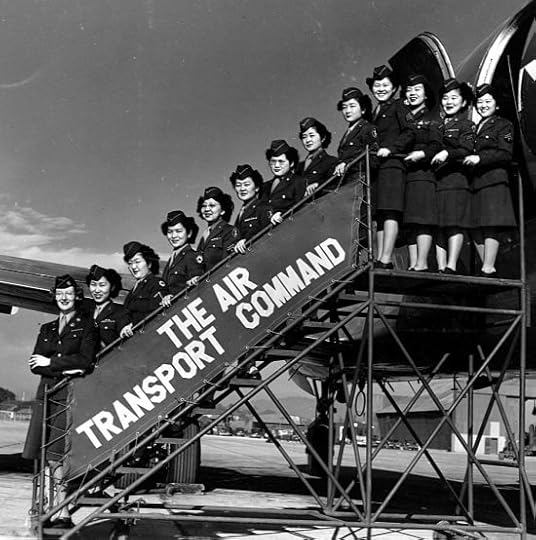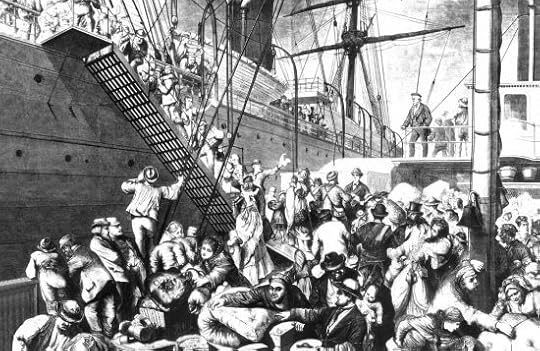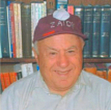Sidney Krimsky's Blog, page 2
November 28, 2017
The Second World War and How It Affected Me as a Child

I grew up during a time when a communist threat was looming in the East, prompting the government to adopt dire measures. Winning the Second World War shaped the collective American psyche and contributed not only to the economic prowess of my country but also to its social fabric. The period after the World War II is also referred to as the age of innocence, and I couldn’t agree more. It was a simpler time when children could roam the streets free of fears, mothers weren’t bogged down by the added pressure of working outside the home, and there was empathy in the hearts of people toward each other and trust for the federal government.
My father tried to get a job in the navy construction fleet after the Second World War started because he had an affinity for machines. But he was refused because of a heart irregularity. Years later, I came to know that Father had also volunteered as an air raid warden during the early year of the war to help America win the air battle of the world war. His job was to instruct citizens to close the drapes so that their light wouldn’t inadvertently assist the enemies in bombing the city or assist the ships to make their way into the New York Harbor. He was quite proud of his job.
My mother took me to the movies to watch Tomorrow the World, which related the horrific underpinning of the Nazi ideology and its eventual outcomes if left unchecked. That was my first brush with evil thoughts and stays imprinted in my mind ’till today, though I never watched the movie again. In America during the Second World War, we would recite the Pledge of Allegiance every day at school without fail before the classes began. It would be followed by the chorus of “Remember Pearl Harbor.” Apart from this, all children were encouraged to help the country in that time of acute shortage of metals, rubber, and consumer items by collecting rubber bands or scrap metals and bringing them to a collection center. I distinctly remember collecting rubber band from school and rolling them into a ball, tin foil from my father’s cigarettes, and whatever else I could nitpick in the streets and bringing it all to the collection center. I also tried to make a victory garden as it was highly encouraged at the time.
After the Second World War ended, Father did not get the chance to work with machines again. We moved to New York shortly after. During the war, and even after, all the essential commodities like milk, meat, and eggs were rationed and had to be obtained with coupons. The Office of Price Administration (OPA) would fix the price of consumer goods, and this was the case until President Truman got rid of the OPA.
Summer days were spent playing games in the streets. Often, immigrants from eastern Europe would meet on the streets to sing their Yiddish songs. I would go to the grocery store to buy pickles, and I spent a lot of time listening to my favorite programs on the radio. All in all, life was a lot more carefree than it is now.
Do you identify with my account of living during the World War? Did you have any interesting experiences during that time? We’d love to hear what you have to share in the comments section below. You can also find me on Facebook, Twitter, or Goodreads. Looking for stories about life of a first-generation Jewish immigrant in America? Grab a copy of From Brooklyn New York To Brookline Massachusetts now!
The post The Second World War and How It Affected Me as a Child appeared first on The Odyssey of Sydney Krimsky.
November 22, 2017
Coming to America as an Immigrant

My grandfather Shlomo Yankelevich Krimsky migrated to America in 1911, hoping to build a better future for himself, his wife, and their five children. His journey from eastern Europe to America is one of the first stories to which I was introduced of a story of an immigrant to the United States.
The letter that Uncle Munya wrote to my brother Sheldon was a great insight into the American immigrant experience for me. He talked about how grandfather found a job at a textile factory and would frequently send letters and money back home. In 1923, after the end of the war, he managed to save enough money to send for two of his eldest children—Uncle Munya and Aunty Pessie—who would ideally have been followed by the rest in time. However, Uncle Munya, who was a member of the Komosal (Communist Youth Organization), refused to leave his motherland. Then my grandmother scratched out his name from the visa papers and wrote down her second son and my father Elyosha’s name on it to accompany his sister to America.
My father, El, was all of sixteen years when embarked upon his voyage to America aboard the SS America. He experienced a lot of discomfort during the journey and finally reached the land of opportunity in 1925. He was a horse lover and worked as a printer before coming to America. He did not receive a proper schooling back home and hence valued education immensely. He would often tell me that I could be anything but not a wall painter. He became a citizen on the basis of my grandfather’s citizenship papers. In 1944, he was eventually offered his own citizenship papers for which he had to answer some basic questions asked by a judge and pass some basic literacy tests. He became a proud American citizen, teaching himself to read and write English with the help of newspapers.
He and Aunt Pauline both acquired jobs so as to pay for the loan their father had taken to pay for their journey to America. My mother, who was also an immigrant, found a job as a seamstress to support herself. Working at a job and saving up money in order to help family made up the daily life in immigrant America. Eventually, they were able to save enough money to send for my grandmother and their other two sisters, Rachel and Annuita.
All my father’s siblings married immigrants. My parents moved to Baltimore during the war, and Bubbie Sonya—my grandmother—would travel there to care for me. She passed away because of cerebral hemorrhage in 1945. I still remember her fondly. It was because of her and her husband’s sacrifices that their children and grandchildren had a better chance at living a good life.
My maternal grandfather, Itzhak Shkolnick, was sponsored by his brother to travel to America. He left his wife and daughter behind in Russia. Grandmother passed away before she could see her husband again and left my mother to be taken care of by her two aunts. My grandfather remarried after discovering that his wife in Russia had passed away and had three kids from that marriage. Ten years after arriving in America, he was able to save up enough money to send for my mother. She arrived in America without papers (WOP), without a birth certificate, and without any luggage and became a citizen. There were several demeaning terms that an immigrant had to endure, like WOP, because of some assistance that they enjoyed like financial assistance and help with procuring housing.
My mother was enrolled in the public school and studied for three years before leaving at the age of sixteen to find a job. Though she was doing well at school, her relationship with her stepmother did not allow her to pursue education. My paternal grandfather brought the Jewish religion with him to America. However, my brother and I were the only grandchildren of his who attended Jewish school, which is probably why he was quite fond of me.
America was a land of opportunities for an immigrant. But coming there also meant that they had to let go of their past, a past which had shaped their identity. Only a few people like my grandfather managed to retain that part of their lives.
Do you identify with the American immigrant experience? Leave a line or two about your journey as an immigrant in America in the comment section below. Let’s talk more on Facebook, Twitter, or Goodreads. Looking for stories about life of a first-generation Jewish immigrant in America? Grab a copy of From Brooklyn New York To Brookline Massachusetts now!
The post Coming to America as an Immigrant appeared first on The Odyssey of Sydney Krimsky.



